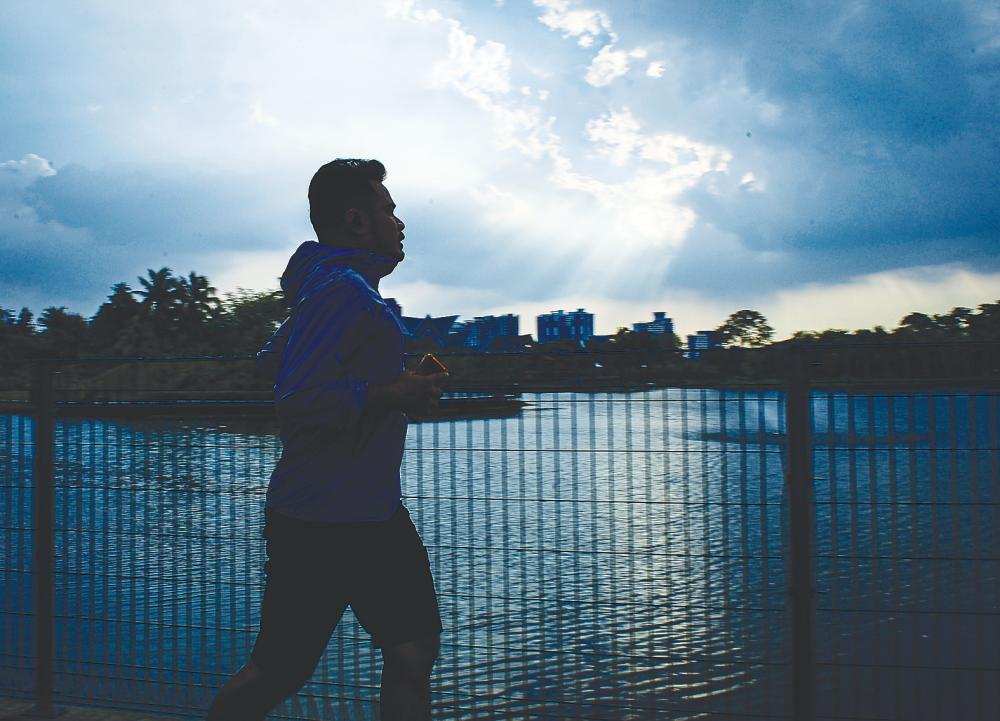PETALING JAYA: A cardiologist has warned fitness enthusiasts not to engage in intense physical exercise at night, as it poses potential risks to heart health and may disrupt sleep patterns.
Dr Hamat Hamdi from the Universiti Kebangsaan Malaysia Specialist Centre said: “Smokers, those suffering from hypertension, diabetes, high cholesterol and those above 40 must be aware of their exercise limits.
“Those in these high-risk categories should have medical assessments, including stress tests done to ascertain their exercise boundaries.”
He said although comprehensive studies on nighttime exercises are limited, recognising the importance of rest at night is essential, adding that cortisol, which is a hormone that helps maintain alertness and provides energy during the day, declines in the evening as part of the body’s natural preparation for sleep.
“But performing intense late evening or nighttime physical activities leads to an increase in cortisol levels. This disrupts the body’s circadian rhythm and interferes with the natural winding down process.”
Circadian rhythm is the physical, mental and behavioural changes an organism experiences over a 24-hour cycle. Light and dark have the biggest influence on circadian rhythms. But food intake, stress, physical activity, social environment and temperature also have an affect.
Hamat said the increased cortisol level after nighttime exercises interferes with the body’s ability to transition to a restful state and impacts sleep quality.
He advised fitness enthusiasts to limit strenuous physical activity before midnight. However, light exercises are generally acceptable.
“While regular physical activity is crucial for overall well-being, gentler forms of exercise are recommended at night to promote healthy and sustainable fitness routines,” he said.
In supporting Hamat’s views, senior public health specialist Prof Hematram Yadav said the impact of pre-bedtime exercises on sleep can vary among individuals.
“Studies suggest that engaging in moderate exercises such as yoga, walking, stretching and aerobics at least 90 minutes before bedtime can promote sleep and enhance its quality, while strenuous exercises have the opposite effect.”
Hematram said the keyword in nighttime exercises is “moderation”, and that late-night exercises and sleep patterns are also intricately connected to various lifestyle factors, including diet and stress levels.
“Engaging in physical activity, particularly aerobic exercises like walking, increases breathing rates and facilitates the circulation of more oxygen throughout the body.
“This dual effect has the potential to lower blood pressure and alleviate stress levels. The holistic impact of late-night exercise, when coupled with a well-balanced diet and effective stress management, can synergistically enhance overall sleep quality,” he said.
Hematram emphasised that while individual responses to exercise may vary, it is generally advisable to schedule vigorous exercises earlier in the day.
He said this would allow the
body to align with its natural circadian rhythm and promote a smoother transition into restorative sleep at night.









